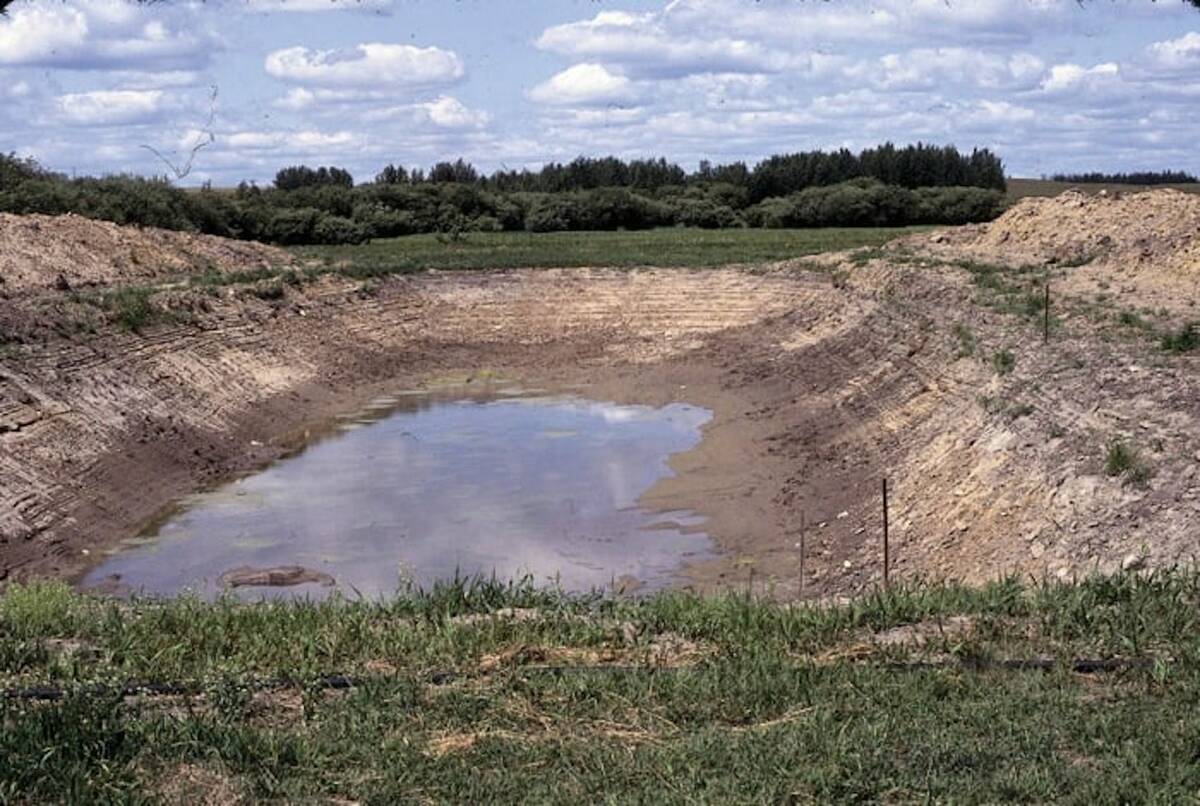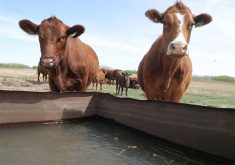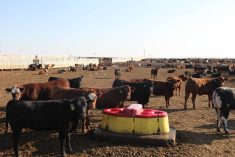Canada’s cattle feeding industry is recommending that governments drop the AgriInvest program in the next batch of farm programs and spend the money in more helpful ways.
AgriInvest, a farmer and government-funded program to cover the first 15 percent of income loss, is a key component of the Growing Forward framework of farm business risk management programs.
It was an attempt to recreate the popular Net Income Stabilization Account program phased out almost a decade ago.
But during Parliament Hill hearings Dec. 8 on what the next Growing Forward programs should look like, National Cattle Feeder Association officials said the program does not work efficiently.
Read Also

Dry summer conditions can lead to poor water quality for livestock
Drought conditions in the Prairies has led to an decrease in water quality, and producers are being advised to closely monitor water quality for their animals.
The $22,500 maximum that farm enterprises can draw from the program in a year makes it almost useless for larger operations such as cattle feedlots, said Russ Evans, policy and research manager for the NCFA.
“What we see is farms getting bigger,” he told MPs on the House of Commons agriculture committee.
“Generally the whole small farm existence is diminishing. Rather than spreading out that little bit of dollars, which (for) most real farm operations that are producing the bulk of our food is really insignificant, (it) would be better spent investing in something that would create their markets better.”
Evans said the money could be better spent helping develop the export markets and trading infrastructure needed by the cattle and feeder industries.
The issue of payment caps within agriculture support programs was also on the mind of the Canadian Pork Council.
Vice-chair Jean-Guy Vincent said the industry is evolving toward larger operations, but maximum program support is not changing to reflect the new industry.
Associate executive director Catherine Scovil said the level of payment caps penalizes some producers who are reacting to market trends.
“If you’re a certain size, you’re actually penalized because you’re too big for the programs,” she said.
“Our philosophy has always been that farmers should be treated equally regardless of their location or size.”
The main resistance against raising program payment maximums has come from the National Farmers Union, which argues higher caps will bias program support to larger agribusiness enterprises and against smaller family farms.
Meanwhile, Conservative MP Ben Lobb from Ontario said the cattle industry is expected to begin repaying program advances next year that were issued during a prolonged price downturn several years ago.
Is the industry ready to meet the repayment deadline? he wondered.
“Speaking on behalf of my clients, they would like it to be an indefinite forgivable loan,” replied Calgary accountant Terri Holowath, whose business clients include many cattle feeders.
















